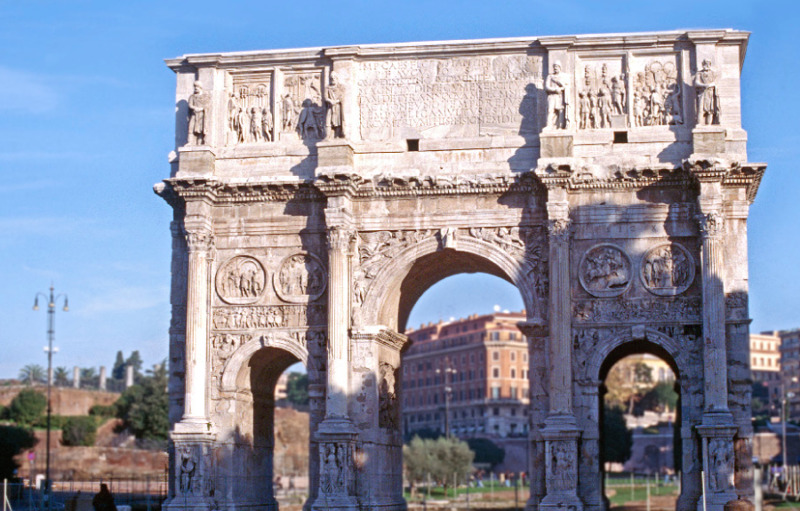
For what reason would it be a good idea for you to think about an old Roman ruler? On the off chance that you are keen on Christianity, you should realize that Constantine's political and religious moves have influenced the convictions and practices of numerous temples directly down right up 'til the present time. Give us a chance to perceive how.
THE CHURCHES—LEGALIZED AND THEN USED
In 313 C.E., Constantine managed over the Western Roman Empire, while Licinius and Maximinus led over the East. Constantine and Licinius allowed the opportunity of love to all, including Christians. Constantine ensured Christianity, trusting that the religion could bring together his realm. *
Constantine was in this way shocked to find that the places of worship were separated by debates. Enthusiastic for agreement, he looked to set up, and afterward authorize, "right" regulation. To win his support, ministers needed to make religious trade-offs, and the individuals who did got charge exceptions and liberal support. "Getting the 'right' adaptation of Christian regulation," said history specialist Charles Freeman, "gave get to not exclusively to paradise yet to tremendous assets on earth." The church along these lines turned out to be incredible figures in common issues. "The Church had procured a defender.
WHAT KIND OF CHRISTIANITY?
An aftereffect of Constantine's coalition with the ministers was a religion with fundamentals that were part Christian, part agnostic. It could barely have been something else since the ruler's objective was religious pluralism, not the quest for religious truth. He was, all things considered, the leader of an agnostic domain. To satisfy both religious camps, he received a position of "cognizant vagueness in his demonstrations and government as a rule," kept in touch with one student of history.
While claiming to support Christianity, Constantine kept one foot in agnosticism. For instance, he rehearsed crystal gazing and divination—mysterious exercises that the Bible denounces.
On the Arch of Constantine in Rome, he has appeared at agnostic divinities. He kept on respecting the sun-god by highlighting the god on coins and advancing the sun-god religion. Late throughout everyday life, Constantine even allowed a community in Umbria, Italy, to build a sanctuary to his family and himself and to choose clerics to serve there.
Constantine deferred his "Christian" sanctification until a couple of days before his demise in 337 C.E. Numerous researchers trust that he kept down so as to hold the political help of both Christian and agnostic components inside the domain. Undoubtedly, his life record and the delay of his sanctification bring up issues about the earnestness of his purported confidence in Christ. Nonetheless, one thing is sure: The congregation Constantine legitimized turned into an amazing political and religious element, one that hence walked out on Christ and grasped the world. Jesus said of his adherents: "They are no piece of the world, similarly as I am no piece of the world.
From this congregation—that was currently common—sprang innumerable sections.
What does the majority of this mean for us? It implies that we ought not to underestimate the lessons of any congregation for allowed however that we ought to analyze them in the light of the Bible.
QUICK FACTS
- Constantine moved toward becoming ruler of the Western Roman Empire in 306 C.E. furthermore, was the sole ruler of both the East and the West from 324 to 337.Constantine guaranteed that in either a fantasy or a dream he was guaranteed that the God of the Christians would help him in the fight.Ascribing a specific military triumph to God, Constantine "promptly requested" that a lance as a cross be put in the hand of his own statue "in the most frequented spot in Rome.Constantine held the agnostic title Pontifex Maximus, or boss cleric, and thought himself overlord of all religions in his domain.
- "A decent head—even a decent Christian—would unavoidably wind up constrained to pick between losing paradise and losing power. Having quite recently accepted the position of royalty, Constantine was in no way, shape or form completed either with influence or with submitting the wrongdoings important to hold it."That Constantine was a Christian in any event toward an amazing finish can't be questioned, given that one doesn't pass judgment on the inquiry by the nature of his Christianity.
No comments:
Post a Comment